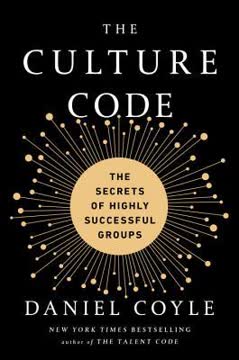重点摘要
1. 掌握“命运15问”,在任何面试中脱颖而出
如果你能为这十五个问题准备出精彩的答案,并在紧要关头识别出每一个问题,那么你就会在面试中表现出色。
“命运15问”至关重要。 这些问题构成了几乎每次面试的基础,包括经典问题如“请介绍一下你自己”,“你最大的优点/缺点是什么?”以及“你为什么想在这里工作?”通过为这些核心问题准备周全的答案,你将能够应对各种面试情境。
定制你的回答。 虽然为每个问题准备一个大致框架很重要,但要根据具体的工作和公司来定制你的回答。研究该组织的价值观、文化和需求,以便相应地调整你的回答。
练习,但不要显得排练过度。 练习你的答案以获得自信,但不要显得机械。目标是以自然、对话的语气传达真实和热情。
2. 准备一个与职位要求相符的引人入胜的个人叙述
在面试中,最好的你就是做你自己。
编写你的故事。 发展一个简洁、引人入胜的叙述,突出你的相关经验、技能和动机。这个故事应该解释为什么你是该职位的理想候选人,以及你的背景如何为这个机会做好了准备。
关注相关性。 虽然你的一生故事可能很有趣,但要优先考虑与当前工作直接相关的方面。强调那些展示你适合该角色的经验和成就。
保持真实。 在定制你的叙述时,保持真实性。真正的热情和激情往往比完美无瑕但缺乏真诚的回答更具吸引力。
3. 在讨论缺点时展示自我意识和成长心态
给他们一点真实的缺点,但在回答中永远不要使用“后悔”这个词。专注于积极的方面,并说你希望自己能做得更多。
承认真实的缺点。 选择一个真正需要改进的领域,但避免那些会让你失去工作资格的重大缺陷。讨论一个真实的缺点显示了自我意识和诚实。
强调成长和学习。 在确定一个缺点后,立即转向讨论你为解决它所采取的步骤。这展示了成长心态和积极的自我改进态度。
提供具体例子。 提供具体实例,说明你如何克服缺点或将其转化为优点。这增加了你的自我评估的可信度,并展示了你对个人发展的承诺。
4. 通过具体例子展示解决问题的能力和主动性
提供一个你在压力或烦恼情况下建设性地解决问题的例子。
使用STAR方法。 在被问及你的经验时,使用情境(Situation)、任务(Task)、行动(Action)、结果(Result)框架来结构化你的回答。这确保你提供了一个完整的解决问题的过程。
突出主动性。 选择那些展示你能够识别问题并采取行动的例子,而不是被动等待。这显示了你的积极性和领导潜力。
量化结果。 尽可能包括你行动所带来的具体指标或结果。这增加了你影响力和有效性的具体证据。
5. 以与雇主共鸣的方式阐述职业目标和动机
雇主希望你因为经过深思熟虑的原因而想为他们工作,所以在谈论你的职业动机时,确保强调从一个职位到另一个职位的合理进展——一个连贯的职业故事——这个最新的公司正好符合其中。
将目标与公司对齐。 研究公司的使命、价值观和未来计划。阐明你的职业抱负如何与该组织的目标相辅相成。
展示长期兴趣。 在表达对当前职位的热情时,也要表明你如何看到自己在公司内的成长。这展示了你的承诺和雄心。
具体说明动机。 不要使用诸如“职业发展”之类的泛泛理由,指出职位或公司中具体让你感兴趣的方面。这表明你做了功课,并对该职位有真正的兴趣。
6. 巧妙应对关于薪资期望和离职原因的棘手问题
对雇主来说,一份工作是一个需要解决的问题。所有其他问题都是次要的,包括你的。
薪资讨论。 当被问及薪资期望时,如果可能,推迟到面试过程的后期再讨论。如果被逼问,提供一个基于你所在地区类似职位的市场研究范围。
离职原因。 专注于寻找新机会的积极动机,而不是当前或以前工作的负面方面。强调你在追求什么,而不是你在离开什么。
处理空档期或被解雇。 如果你有就业空档期或被解雇,诚实但简短。专注于你从中学到的经验以及它如何使你成为一个更强的候选人。
7. 以从容应对曲线球和创造性问题的策略
如果一家公司重视团队成员的幽默感,这也可能是一个很好的评判方式。
保持冷静。 记住,面试官通常更感兴趣的是你的思维过程和处理意外情况的能力,而不是你的具体答案。
大声思考。 在处理一个具有挑战性的问题时,口头表达你的思考过程。这让面试官了解你的解决问题的方法。
谨慎使用幽默。 如果合适,一点幽默可以帮助缓解紧张并展示你的个性。然而,确保它是专业的,并且不冒犯任何人。
8. 提出深思熟虑的问题,留下持久的积极印象
问答阶段是一个独特的机会,可以在面试官心中留下深刻而持久的印象。
提前准备。 准备一份5-6个关于职位、公司和团队的深思熟虑的问题清单。这展示了你的真正兴趣和准备。
与之前的讨论联系。 如果可能,将你的问题与面试中早些时候讨论的主题联系起来。这显示了积极的倾听和参与。
避免不合适的话题。 在这个阶段避免关于薪资、福利或休假的问题。专注于职位和你对公司的潜在贡献。
最后更新日期:
FAQ
What's Why You?: 101 Interview Questions You'll Never Fear Again about?
- Interview Focus: The book is a comprehensive guide to mastering job interviews, emphasizing the importance of preparation and understanding the interview process.
- 101 Questions: It covers 101 common interview questions, providing strategies for answering them effectively and authentically.
- Mindset and Self-Awareness: Author James Reed highlights the significance of mindset and self-awareness in interviews, suggesting that a positive approach can enhance success.
Why should I read Why You?: 101 Interview Questions You'll Never Fear Again?
- Expert Insights: Written by recruitment specialist James Reed, the book offers valuable insights into what employers seek in candidates.
- Practical Advice: It provides actionable tips and techniques for answering interview questions, making it a useful resource for job seekers at any level.
- Confidence Boost: By preparing with this book, readers can reduce anxiety and approach interviews with greater confidence and clarity.
What are the key takeaways of Why You?: 101 Interview Questions You'll Never Fear Again?
- Authenticity Matters: Being genuine in interviews resonates with employers more than rehearsed responses.
- Understand Questions: Recognizing the underlying themes of interview questions can help tailor effective responses.
- Mindset Over Skills: Employers value mindset, with the "3G Mindset" (Global, Good, Grit) being crucial for employability.
What are the best quotes from Why You?: 101 Interview Questions You'll Never Fear Again and what do they mean?
- “Character is destiny.”: This emphasizes the role of personal integrity and values in shaping career success.
- “The best person you can be at interview is yourself.”: Highlights the importance of authenticity over trying to fit a mold.
- “To an employer, a job is a problem to be solved.”: Reframes the job application process, focusing on addressing employer needs.
What is the “3G Mindset” mentioned in Why You?: 101 Interview Questions You'll Never Fear Again?
- Global, Good, Grit: These traits include adaptability, integrity, and resilience, which are highly valued by employers.
- Mindset Over Skills: The right mindset can make candidates significantly more valuable than technical skills alone.
- Showcase in Interviews: Candidates should demonstrate their 3G Mindset through examples in their interview responses.
How does Why You?: 101 Interview Questions You'll Never Fear Again suggest handling stress during interviews?
- Acknowledge Stress: Recognize stress as a normal part of interviews and have strategies to manage it.
- Physical Techniques: Use methods like power posing and deep breathing to reduce anxiety.
- Focus on Connection: Shifting focus to the interviewer can help ease nerves and foster a genuine connection.
How can I prepare for the “Tell me about yourself” question according to Why You?: 101 Interview Questions You'll Never Fear Again?
- Structure Your Answer: Use a clear structure, such as a professional summary or a list of roles and hobbies.
- Practice and Rehearse: Rehearse your answer to deliver it confidently and smoothly.
- End with a Flourish: Conclude in a way that invites further questions, signaling readiness for deeper conversation.
What are the “Fateful 15” questions in Why You?: 101 Interview Questions You'll Never Fear Again?
- Core Interview Questions: These are the most common and impactful questions likely to be encountered in interviews.
- Preparation Focus: Preparing answers for these questions can significantly improve interview performance.
- Emotional Themes: Each question has an underlying theme that candidates should address to connect with the interviewer.
How does James Reed suggest handling curveball questions in Why You?: 101 Interview Questions You'll Never Fear Again?
- Stay Calm: Remaining calm demonstrates poise and adaptability.
- Think Aloud: Verbalizing your thought process helps the interviewer understand your reasoning.
- Use Humor: A light-hearted approach can ease tension and show personality.
What is the STAR method mentioned in Why You?: 101 Interview Questions You'll Never Fear Again?
- Structured Answers: STAR stands for Situation, Task, Action, and Result, providing a framework for competency-based questions.
- Specific Examples: Encourages sharing specific past experiences to make answers compelling.
- Demonstrate Impact: Outlining results showcases contributions and value to potential employers.
How should I respond to the question, "Why should I choose you over other candidates?" according to Why You?: 101 Interview Questions You'll Never Fear Again?
- Highlight Unique Qualities: Focus on personal characteristics and experiences that set you apart.
- Emphasize Fit: Articulate how your values and work style align with the company culture.
- Be Confident but Humble: Convey confidence in your abilities while remaining open to collaboration.
How can I effectively close an interview according to Why You?: 101 Interview Questions You'll Never Fear Again?
- Express Enthusiasm: Clearly state your interest in the position and why you are a great fit.
- Ask About Next Steps: Inquire about the next steps in the hiring process to show eagerness.
- Thank the Interviewer: A polite thank-you reinforces professionalism and leaves a positive impression.
评论
《101个你再也不用害怕的面试问题》因其对面试准备的深刻建议而备受好评。读者们赞赏书中对常见问题的详细分析、心态调整的建议以及来自招聘行业的内部视角。许多人发现这本书对面试者和面试官都很有帮助。书中的实用方法,包括示例答案和关键短语,广受赞誉。一些读者指出其企业导向和偶尔的重复,但总体而言,这本书被认为是求职者的宝贵资源,尤其是那些新手或久未面试的人。
Similar Books










